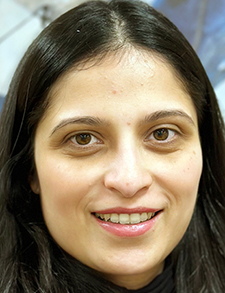Clinical question: Are in-hospital adverse events worse in post-operative delirium patients treated with haloperidol compared to atypical antipsychotics?
Background: Post-operative delirium is common in the elderly and can lead to prolonged length of stay, institutional discharge, and increased healthcare costs. While non-pharmacological management is preferred, antipsychotics are commonly used in this population. Over the years, the use of haloperidol has declined, and there is a rise in the use of atypical antipsychotics, particularly in the elderly. This retrospective study looked at in-hospital adverse events, including death, cardiac arrhythmia, pneumonia, stroke, and transient ischemic attack in patients treated with haloperidol, olanzapine, quetiapine, and risperidone for postoperative delirium.
Study design: Retrospective cohort study
Setting: Premier healthcare database which includes 900 hospitals
Synopsis: The study population included patients over the age of 65 undergoing major surgery, as defined by AHRQ procedure classification. Patients who received antipsychotics on or before the day of surgery, had indications for antipsychotics for other diagnoses, or received medications seven days or more after surgery or via parenteral route were excluded. 17,115 patients were analyzed using propensity-score-based overlap weighting. Patients treated with haloperidol were older and had higher medical acuity. The risk of death for patients treated with haloperidol was 3.0% compared to 3.3%, 2.6 %, and 2.8% for risperidone, quetiapine, and olanzapine respectively, with no statistically significant difference. The differences in secondary outcomes, including cardiac arrhythmia, pneumonia, stroke, or transient ischemic attack (TIA) were also not statistically significant.
Bottom line: The risk of in-hospital death, cardiac arrhythmia, pneumonia, and stroke or TIA was similar in elderly patients treated with haloperidol, olanzapine, risperidone, or quetiapine for post-surgical delirium.
Citation: Kim DH, Lee SB, et al. Comparative safety analysis of oral antipsychotics for in-hospital adverse clinical events in older adults after major surgery: a nationwide cohort study. Ann Intern Med. 2023;176(9):1153-62.

Dr. Shenoy
Dr. Shenoy is the associate chief of hospital medicine at Mount Sinai West, and an associate professor of medicine at Icahn School of Medicine at Mount Sinai in New York.